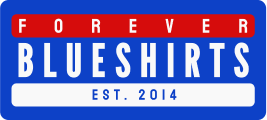Born in Friartown, Forged for Broadway: Brett Berard’s Rise with Rangers
Before Brett Berard ever laced up skates, the family kitchen in East Greenwich, Rhode Island was his first rink. As a toddler, alphabet blocks became pucks, the floor his sheet of ice, and a Toronto Maple Leafs mini-net — a gift from his dad on a recruiting trip — was the target. The future New York Rangers forward went block by block, stickhandling the length of the floor and firing each one home, reloading and repeating until hours passed.
“Really right from the time he could walk, he seemed to have a passion for hockey,” recalled his father, longtime college hockey coach David Berard. “He would stickhandle … hours at a time … it was a built-in babysitter! I remember telling my wife, Lynne, at one point, ‘I think he is going to want to play hockey someday.’”
By three, Brett was on the ice in Learn to Skate, and by four, he was already skating in house league games — blending joy with competitiveness that hinted at something bigger.
Related: Does a healthy Brett Berard have inside track to opening-night roster spot with Rangers?
A Foundation in Family
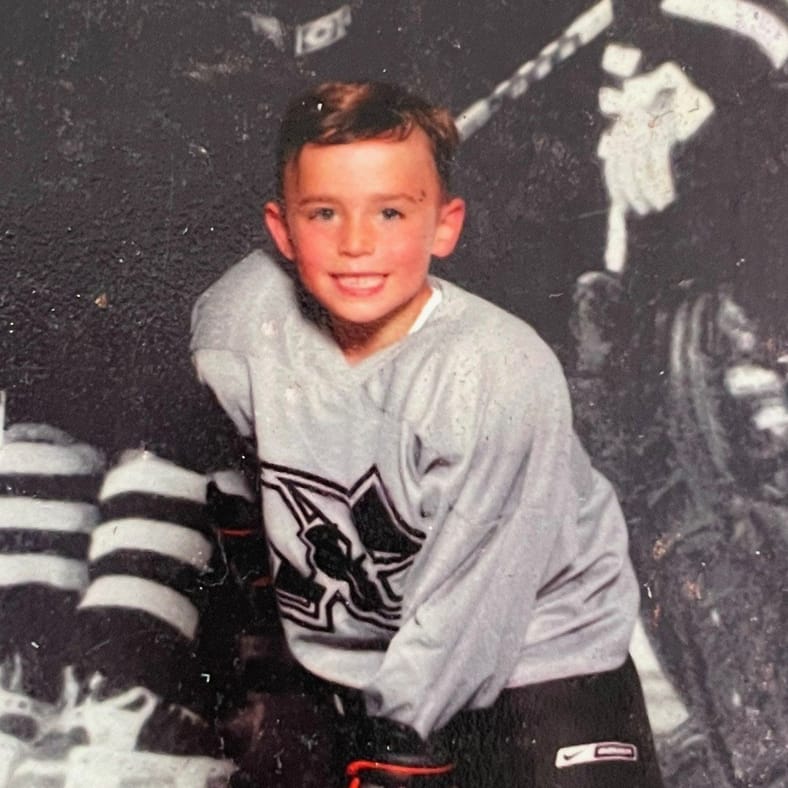
Being around the rink was second nature. With his dad coaching at Providence College, Brett wasn’t just watching hockey — he was immersed in it.
“My background as a college coach certainly exposed him to the game of hockey on a different level than most kids,” David explained to Forever Blueshirts. “Having the ability to be around the game as much as he was — getting on the ice during off-hours, going to games constantly, being around the locker room regularly — it gave him more of a perspective on hockey than most would have.
“Ultimately, we felt, as parents, our role was to expose Brett and Brady (his younger brother) to activities and sports that were out there to see what they liked or had a passion for, then support them in it.”
There was never any push, only guidance. Brett played soccer, baseball, golf, lacrosse, and hockey, each with the same exuberance. David and Lynne’s philosophy was simple: expose their boys to opportunity, let curiosity lead, and keep perspective.
“I did not coach Brett or Brady in sports. I wanted them to be coached by others, so I could be their dad,” David, now the men’s hockey coach at Stonehill College, added. “Lynne and I would constantly stress four things: work hard, be coachable, be a good teammate, and have fun.”
Those values became Brett’s foundation — lessons that carried him from childhood rinks to the brightest stage in hockey.
Brothers and Rivals
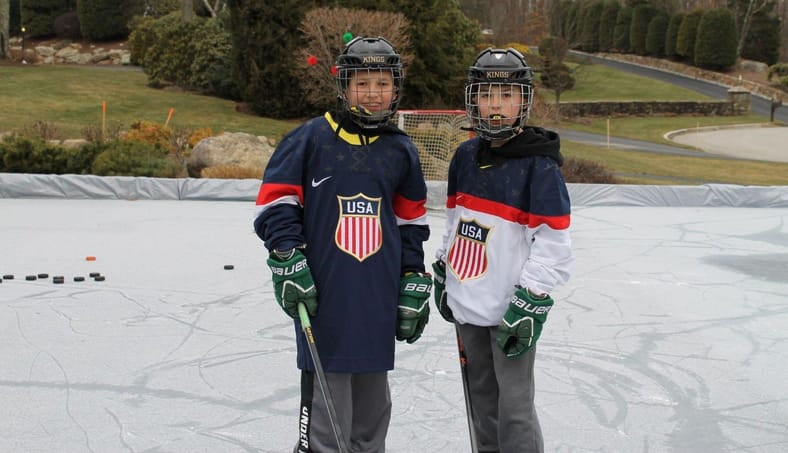
Photo courtesy David and Lynne Berard
Brett’s fiercest opponent growing up wasn’t across the rink — it was in his own home. Brady, currently a senior forward on the Boston College men’s hockey team, is just 17 months younger than Brett.
Backyard games often erupted into spirited battles full of noise and emotion.
“They’re best friends, but the fiercest competitors to this day,” David shared. “Those battles forged Brett’s tenacity and shaped one of his greatest attributes.”
The edge stuck with Brett. His competitive fire — rooted in those sibling duels — became a hallmark of his game.

Photo courtesy David and Lynne Berard
These days, Brett and Brady still go at it on the golf course and pickleball courts.
“They still compete like crazy,” David laughed, “but they’re much more ‘mature’ if they lose.”
Related: How healthy Brett Berard could crack Rangers opening-night lineup
The Friartown Dream
Brett committed to Providence College on the spot — a decision that felt as natural as taking a breath.
“It was his dream school,” David said. “A Rhode Island kid growing up skating at Schneider Arena, attending almost every Friars game — it was a no-brainer.”

Photo courtesy David and Lynne Berard
For the Berards, it was deeper than a dream. Providence was their home. David had been a Friars goaltender and later coached there. Lynne captained the field hockey team. When Brett stepped onto the ice in black and white, he wasn’t just playing college hockey — he was carrying forward a family legacy.
“When he played his first game his freshman year, it was a full circle experience for sure. To be able to wear the same jersey as your son was a proud moment,” David said.
Friartown wasn’t just a stop. For the Berards, it was home.
Draft Day and World Juniors Gold
The fall of 2020 brought challenges, as well as unforgettable milestones.
“The NHL Draft and his first World Juniors experience was a complete whirlwind and totally surreal,” David remembered. “First of all, it was during the pandemic, so the draft was held remotely. He was a freshman at PC, so the entire school experience was different — online classes, weekly COVID testing, masks, limited team activities. It was an uneasy and interesting time for an 18-year-old.”
On October 7, 2020, the Rangers selected Brett in the fifth round, 134th overall.
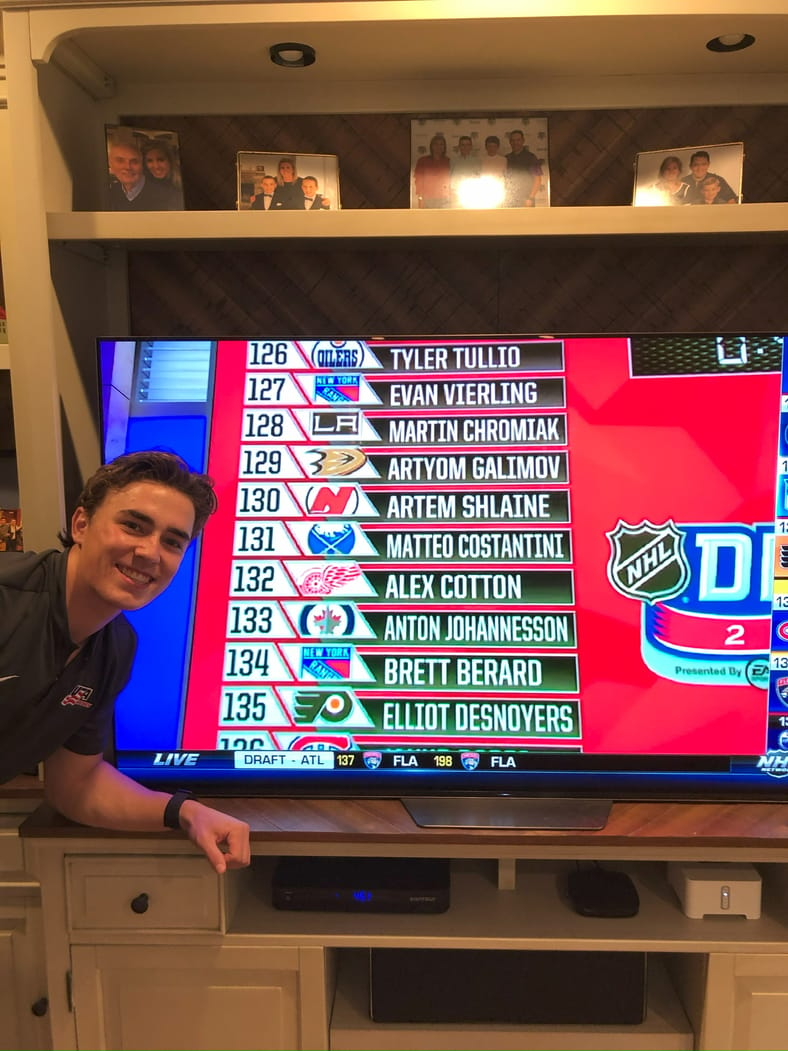
Photo courtesy David and Lynne Berard
“It was a surreal moment to see his name and picture on TV, with the Rangers logo next to it,” David recalled. “The culmination of a lot of hard work, sacrifice, perseverance and dedication.”
The very next morning, Brett was on a plane to Plymouth, Michigan, for the first U.S. World Junior tryout camp. Against the odds — one of the youngest players there — he earned a spot on the roster. Brett helped the United States win the gold medal at the 2021 World Junior Championship, when he had five points (one goal, four assists) and finished +8 in seven games
“As a 2002 birthdate, the odds were stacked against him making the team,” David said. “But halfway through the opening game against Russia, he was moved up into the lineup and their line had a strong tournament. To watch them beat Canada in the Gold Medal game was amazing. The most memorable part for Lynne and I was getting a phone call from Brett when he was on the ice celebrating, wanting to share the experience with us from Edmonton.”
In just a few months, Brett went from Rangers draft pick to gold medalist — two dreams colliding in the span of a single season.
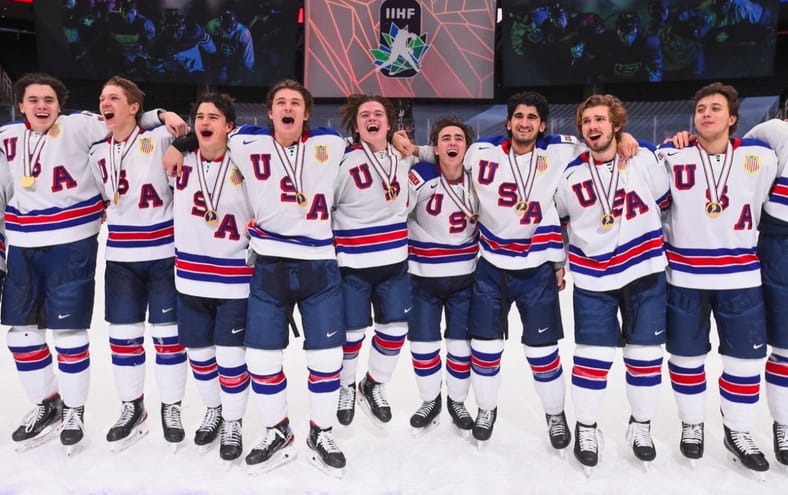
Broadway Bound
Brett scored 18 goals and averaged better than a point per game (38 points in 36 games) as sophomore at Providence in 2021-22. He added another 10 goals and 24 points the following season, and decided to turn pro after his junior campaign.
In 2023-24, Brett led Hartford and ranked second among all American Hockey League rookies with 25 goals. He started fast with Hartford again last season.
Each step led to one phone call.
“I remember vividly when I received the call that Brett was called up,” David said. “It was Sunday, November 24 (2024) … He asked what I was doing tomorrow night. I said not much, just have practice, why? He then said he was called up and would be playing against St. Louis the following night at MSG. It was an incredible moment.”
Brett had an assist in his NHL debut, a 5-2 loss to the Blues. Nearly 40 family and friends made it to the Garden that night, Nov. 25. From a childhood floor to Broadway ice, the dream had a date and a place.
Two nights later, Brett scored his first NHL goal — a beauty off the rush — in a 4-3 loss to the Carolina Hurricanes in Raleigh.
Lessons in Resilience
Every rookie faces adversity, and Brett’s arrived less than a week into his NHL career. His parents were in the stands that night at MSG and saw it unfold in real time during a game against the Montreal Canadiens.
“I knew after he got hit that he was hurt,” David recalled. “He left the bench for about eight minutes as they checked him out, but eventually came back late in the third and played a couple of shifts. But it turned out to be more serious.”
The heavy collision in his fourth NHL game on Nov. 30, 2024 resulted in a torn labrum. Brett missed a week of action but refused to let the injury define his season. He declined surgery and learned how to manage his game, while wearing a brace for his injured wing.
“Obviously, he never got back to 100 percent the rest of the year, but his mindset was he had worked so hard to get to the NHL that he was going to find a way to play through it,” David said.
What could have been a setback became a defining lesson.
“The road to achieving your goals isn’t a straight climb … you learn more from the struggle than the highlights,” David reflected. “It made him a better player and a better person.”
Despite playing in pain, Brett continued to be a sparkplug for the Rangers. He finished the season with 10 points (six goals, four assists) in 35 NHL games, including his first two-goal outing against the Islanders on April 10.
Competing for Opening Night

Now healthy and visibly stronger from his offseason training at Prentiss Hockey Performance, Brett heads into training camp with the Rangers aiming to win a spot at left wing — the position he’s played throughout his career. The 23-year-old will attempt to do so under new Rangers coach Mike Sullivan, whose teams thrive on pace, structure, and work ethic. Sounds like a natural match for Brett’s tenacious style.
The battle to earn a spot on New York’s opening-night roster is fierce. Brett’s competition includes a pair of first-round picks — Gabe Perreault (2023) and Brenann Othmann (2021) — and players with more NHL experience, like Juuso Parssinen and Conor Sheary (who’s in camp on a PTO).
However, Brett enters camp not as an underdog, but as a player whose relentless speed, grit, and forechecking align perfectly with the new Rangers identity.
Full Circle
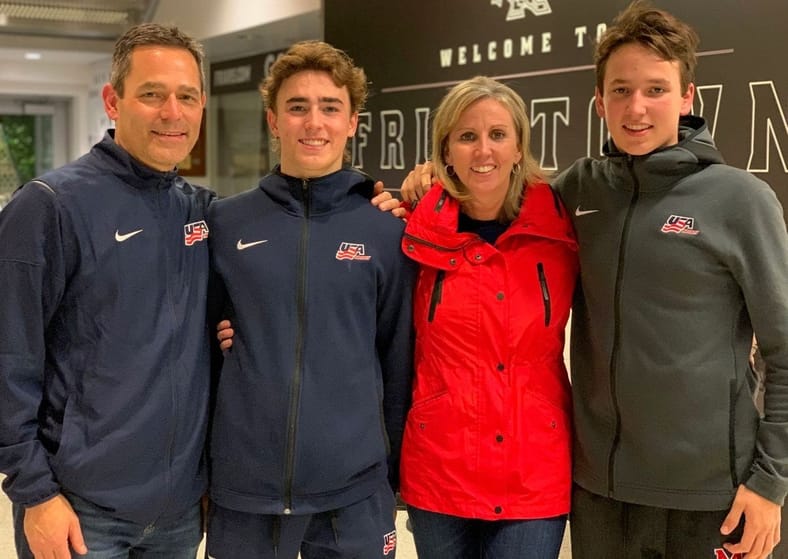
Photo courtesy David and Lynne Berard
From a kitchen floor in East Greenwich, Rhode Island, to Providence College ice, from winning gold at the World Juniors to stepping into Broadway Blue, Brett Berard’s story is one of passion, perseverance, and family.
Those early days of alphabet blocks as pucks, and Lynne’s Suburban overflowing with friends after hockey and baseball games and practices, are more than just childhood memories — they’re the roots of a life built on meaning, competition, and community.
That unyielding spirit still shines through today on the highest stage, evident to all who champion him with the Rangers And now, Brett’s built for the moment, ready to seize his place on hockey’s brightest stage, with his parents’ words still guiding him.
“Work hard, be coachable, be a good teammate, and have fun.”
